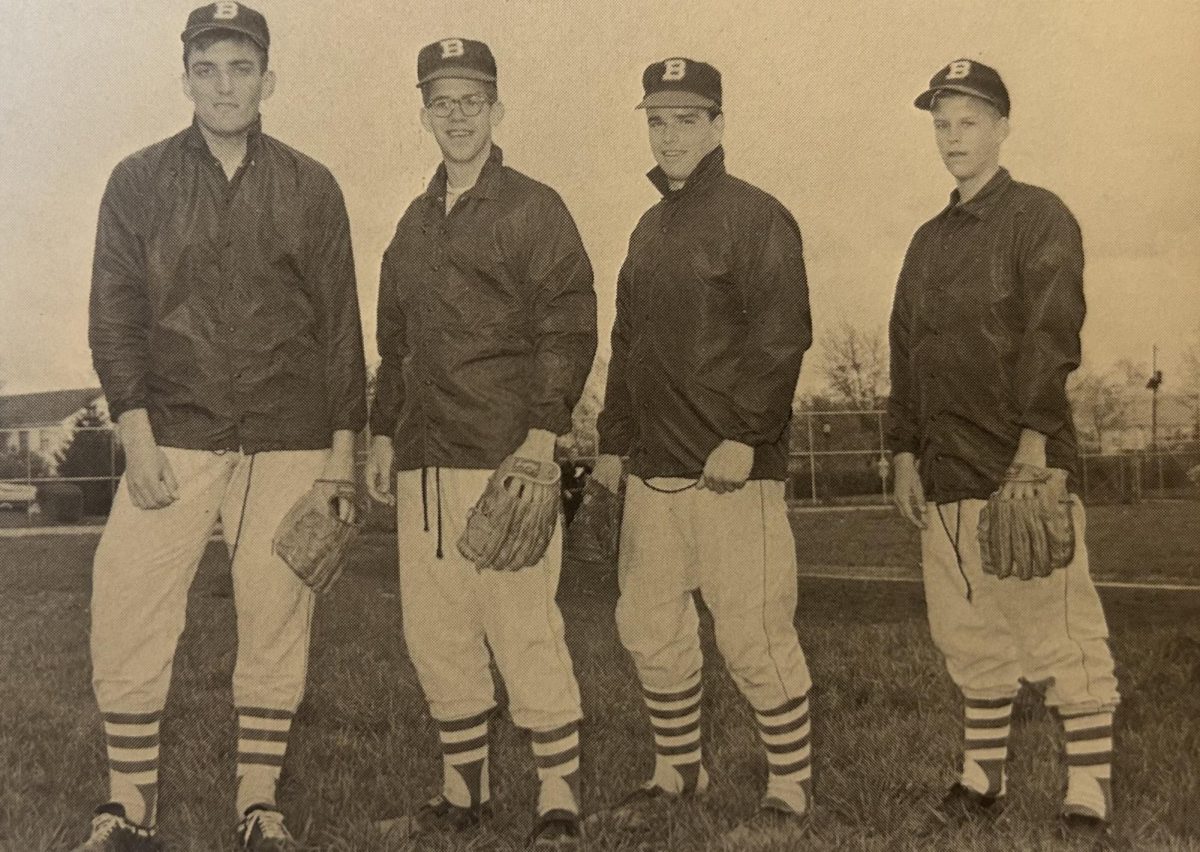 One simple fact of life: people love to learn more about themselves. Whether it be through personality tests or intense introspection, the drive for self-reflection is common.
One simple fact of life: people love to learn more about themselves. Whether it be through personality tests or intense introspection, the drive for self-reflection is common.
To that end, standing out in the field of personality tests is the Enneagram test-a personality test focused on assigning many categories of personality to a single person and then ranking them on how present they are.
The Enneagram test ranks individuals in terms of similarity to nine personality types labeled 1-9, according to the Enneagram Institute. The Truity Enneagram test lists these types as 1, the perfectionist; 2, the helper; 3, the achiever; 4, the individualist; 5, the investigator; 6, the skeptic; 7, the enthusiast; 8, the challenger; and 9, the peacemaker. All of these traits have strengths, weaknesses, fears, aspirations and other quirks typically found in each trait.
According to the Enneagram Institute, the Enneagram test is a synthesis of many global teachings and traditions but was compiled by the Bolivian philosopher Oscar Ichazo. Ichazo eventually made the Enneagramic figure, an irregular hexagon with an interior circle which has the nine types at different “points,” and defined the nine major personality types. Along with the nine major types, subcategories with strengths and weaknesses were developed by Ichazo, and the test became a sum of various cultures’ traditions and teachings.
In the contemporary world, the Enneagram test is most often used in workplaces, according to The Enneagram at Work, and people strive to improve workplace relations through the test. It is also used for spirituality by many people striving for self-reflection and introspection, according to the Enneagram Institute.
Clinical psychologist Michael Flores views personality tests like the Enneagram test as a mixed bag, and that people just like to see personality types assigned to themselves.
“They’re entertaining, people like to see their results, and I think that people like to figure out why they act the way that they do,” Flores said. “It’s something that we as humans have a natural desire to find out, and personality tests give us a way to find that out. And honestly, they’re just fun.”
Flores said the Enneagram is not a viable psychological test as it was not created by a psychologist and is a more spiritual test than a psychological one. Personality tests are also generally invalid in terms of results, but some may be reliable in giving a certain result, Flores said.
“All personality tests have some sort of reliability issue,” Flores said. “If you have a scale and it’s always five pounds off, it’s not actually giving you a valid result, but it’s still a ‘reliable’ result because it’s always five pounds off.”
Junior Miller MacDonald took the test in February and enjoyed it, but he also thought there were some flaws with how it was formatted and how the questions were structured.
“Lots of the questions were very repetitive,” MacDonald said. “Though they might have wanted to see if you changed your mind, I think in terms of the actual questions there were some that were a bit questionable. I felt like they were either leading questions or did not have satisfactory answers.”
MacDonald explained that each question on the test has the answer options strongly disagree, disagree, neutral, agree and strongly agree, so even if your scores are accurate, it is hard to give a fully accurate answer. He said that his three primary Enneagram types, 5-8-1, were accurate to him: 5, the investigator who strives for knowledge; 8, the assertive challenger; and 1, the rational idealist–though he thinks the order is more accurately 1-5-8.
Junior Caroline Ziegler also took the test in February and thinks that only some people might enjoy the test.
“If you’re interested in personality types, you would probably enjoy this, but if you aren’t, you probably wouldn’t like spending your time on it,” Ziegler said. ¨If you don’t find it important, you won’t put thought into the answers and get an accurate type.”
Ziegler’s primary result was 9, the peacemaker, and she thought it was accurate to herself, though broad.
“Enneagram 9 is ‘you’re indecisive,’” Ziegler said. “Even though it’s broad, it does fit me pretty well.”
Math teacher Jason Willcoxon was not surprised at his primary result when he took the test–1, the reformer–but was surprised with his tertiary one.
“My third highest was a bit of a surprise,” Willcoxon said. “‘The challenger.’ I think it’s decisive, confrontational, self-confident. Though I push the envelope, I don’t think of myself as especially confrontational or self-confident.”
Willcoxon was also critical of the type of questions, specifically the fact that the last three pages of the six page test were the same questions repeated. However, Willcoxon explained that he thought the test could be helpful in relationships.
“I think having other people take it, answering as you would, would be an interesting insight,” Willcoxon said. “Would your result be the same or would it differ? I like the idea of, for me, my students, spouse, or loved ones in general taking it with me in mind.”
Ziegler said the margin of error on the Enneagram test was less than something like a Zodiac since the Enneagram test results are more specific.
“Zodiac signs are so loose and broad you can apply them to anyone, but with the Enneagram test, the types are more specific,” Ziegler said.
Flores said that he doesn’t think personality tests such as the Enneagram test are automatically bad–it depends on how they’re used.
“I think, ultimately, if people take it and it makes them happy or it gives them direction in their lives, who am I to say that that’s a bad thing?” Flores said. “People just need to know that this single personality test doesn’t determine their entire life, but if it gives them motivation and drive, that’s a positive.”















